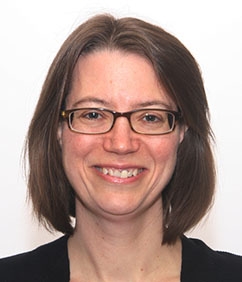Family Defense Clinic helps change a New York precedent that separated families
After a multi-year effort led by NYU Law’s Family Defense Clinic, New York’s Court of Appeals, the state’s highest court, has struck down a precedent that made it difficult for out-of-state parents to gain custody of their children after they had been placed in foster care in New York.
“The clinic developed a strategy to challenge New York’s unconstitutional policy of unnecessarily putting children in foster care when a New York parent was unable to care for them and the other parent lived outside New York,” says Christine Gottlieb ’97, who directs the clinic. “The court’s decision will allow more families to stay together,” she says.
The October 25 decision centered around the application of the Interstate Compact on the Placement of Children, an agreement among all 50 states (as well as the District of Columbia and the US Virgin Islands) that dictates the requirements for placing foster children in homes across state lines. Under the compact, parents who are seeking custody have been required to meet state-determined criteria regarding fitness and suitability, even when the parent has never been accused of abuse or neglect. This can lead to an enormous amount of interstate red tape as parents try to determine these criteria and meet them, says Gottlieb. The compact was never intended to be used against parents seeking custody, she says.
“This compact has been hurting families as far back as I’ve been practicing in family court,” says Gottlieb, “and so the clinic wanted to try to find a way to address it more systematically.” Over multiple years, clinical students worked on lower court cases seeking to challenge the compact’s misapplication against parents and pursuing appeals whenever possible in an effort to get the issue before the state’s highest court. Sidra (Zaidi) Galvin ’18 and Arletta Bussiere ’18, in particular, worked to find those cases and develop strategy around them, Gottlieb says.
After some lower court victories, the clinic connected with Davlin Laland. His custody case had already been decided, but the clinic believed that the compact had been applied erroneously in his case.
In 2013, Laland’s infant daughter was placed in foster care in Suffolk County, New York, after a New York judge ruled her mother to be neglectful. When Laland, who resided in North Carolina, sought custody, child welfare agents in Suffolk County cited the compact’s bureaucratic requirements to oppose releasing the child to her father. What resulted was nearly a decade in litigation as Laland tried in vain to extract his daughter from foster care. Ultimately, Laland reached a settlement with the Suffolk County Department of Social Services that allowed him to continue to visit her, though not gain custody.
The clinic decided to take on Laland’s appeal, partnering with law firm Freshfields Bruckhaus Deringer. Together, the advocates drew upon the clinic’s lower court wins, contending that the compact was not intended to be used to keep non-custodial parents from gaining custody of their children.
The October 2022 decision by the Court of Appeals adopted the clinic’s arguments, with the seven judges unanimously holding that the Suffolk County court was wrong to deny Laland custody based on the compact’s rules. While the new precedent doesn’t affect Laland’s existing settlement with the Suffolk County Department of Social Services, Gottlieb says, he had pursued the case to help other parents.
“There were a lot of challenges along the path,” says Gottlieb, “But one of the great things about clinical work is that you’re able to keep at the challenges—learning from setbacks and developing new strategic approaches to achieve meaningful change over time.”
Elie Hirschfeld Fellow Amy Mulzer played a leading role in the project, Gottlieb adds. Created in 2018, the one-time fellowship provided funding for a lawyer to aid the clinic’s long-term appellate goals. “The clinic benefited enormously from Amy’s expertise and vision,” says Gottlieb. Since completing the fellowship, Mulzer is now working as a senior appellate attorney at Brooklyn Defender Services, which partners with the clinic.
“This project demonstrated what I think is so exciting about this moment in family defense and the reason that it’s so gratifying to be able to bring students into a vibrant field,” says Gottlieb. “Since Marty Guggenheim [’71] founded the Family Defense Clinic at NYU Law, it has played a significant role in developing best practices in the field. Now it is spearheading a new chapter of strategic impact work in the family defense movement.”
Posted February 16, 2023.


